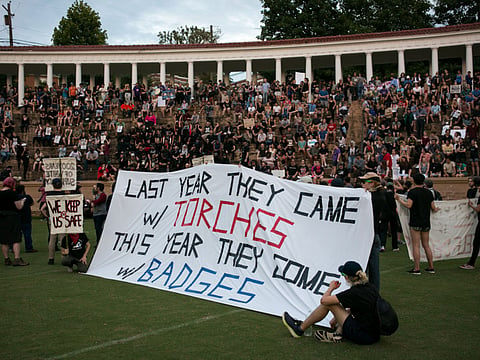Australia has a huge race problem
Reconciliation in the country is not possible until politicians acknowledge the harmful impacts of racism

There’s no question that Australia is a far more racist country than its political class like to admit. No amount of spin should be capable of disorientating hard facts sufficiently to obfuscate that reality. Yet — incredibly — I still receive abusive “mail” ridiculing me for jumping at shadows, protesting it just ain’t so.
I understand how a certain amount of privilege in life provides a buffer to the kinds of racialised discrimination, prejudice and hate speech that daily infects the lives of people of colour in Australia. But surely by now, in the heavily media saturated environment we inhabit, claiming colour-blindness, whether in an Australian context or global society, isn’t possible. Yet, such selective awareness persists.
Undoubtedly, this is partly due to the “filter bubbles” created by the algorithms that shape the most pervasive media in each of our lives. In these safely curated backwaters, our social media newsfeeds — now always ready at hand — reinforce our preferred constructions of the world. Consuming content is self-medication: a drip of personally homogenised feels to fix the anxiety of each participant-user.
For politicians, there is also the element of political expediency. The Aussie prime minister, for example, can put a cameo in up north in a vulnerable Aboriginal community , while one or two of his ministers eagerly race-bait against other marginalised, at-risk peoples in the south. Apparently this provides some weird kind of “balance” for apologists. You can see it for yourself in their condescending rationalisations on Facebook and Twitter should you choose to surf beyond the reef of your own social media echo chamber.
Australia was founded on a racist document and hasn’t improved.
For readers who have chosen not to follow this particular “thread”, that’s the dilemma that’s afflicted the nation for the past six or seven years. The recent surge in racism is not an anomaly. For many white, liberal-minded Australians, recent media commentary over the appearance of a notorious white nationalist on the Sky News channel was the first indication that the society remains deeply stricken by racism. And for many of them, the subsequent banning of said individual and the news channel’s “icing” of the particular programme on which he appeared is a sufficient practical and symbolic rejection of racism. For others, the concern is that it is too little too late . The neo-Nazi is out of the bag. By banning him from ever appearing on its channel again, Sky News has centred — or normalised — its regular hard-right editorials. It doesn’t matter a jot if this was an intended or inadvertent consequence.
Racial ideology
But this incident is only a tile in the much larger colonial project that continues to impact the lives of not just First Nations peoples, but the majority of people of colour in Australia. It’s a racial ideology that’s seemingly in perpetual motion in this country, which has been present since at least federation and arguably further back, with the arrival of “enlightened” Europeans roughly 250 years ago. The recent surge in racism merely stems from this blight, and in terms of timespan, it goes well beyond what occurred at Sky News on Sunday night.
In the past fortnight alone, concerted attacks by Australian racists on media figures such as Osman Faruqi and Benjamin Law have caught my attention. In Faruqi’s case, the racialised and disproportionate abuse he received for supporting the banning of plastic bags from supermarkets has threatened to silence his activity on Twitter. Meanwhile, the racial abuse directed at Law involved a thinly-veiled death threat for suggesting Virgin Australia cease broadcasting Sky News in their lounges.
To bring attention to the toxicity of the abuse being directed towards outspoken people of colour, I recently tweeted a screenshot of an email from “whitepride” titled “abo dogs” that was sent to the administrators of the Aboriginal and Torres Strait Islanders online platform, IndigenousX. Other established and emerging First Nations writers and commentators have informed me they have also experienced an upsurge of similar abuse in recent weeks. It should surprise nobody that the racists feel emboldened. If this kind of racial vilification reflects the current social environment, how is it possible for Aboriginal people to feel optimistic about a “reconciled” future in Australia? Particularly when the kinds of attitudes that consider us “dirty black dogs” are so valued by embattled Australian politicians every time a dicey election rolls around.
When it comes to reconciliation, we can’t be expected to keep doing the heavy-lifting, not while these same race-baiting politicians and political elites have no interest in acknowledging the varied, harmful impacts of their influence. Or are we just supposed to accept that white Australia is incapable of not being racist?
— Guardian News & Media Ltd
Sign up for the Daily Briefing
Get the latest news and updates straight to your inbox


